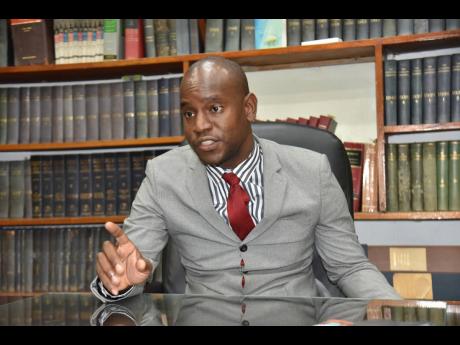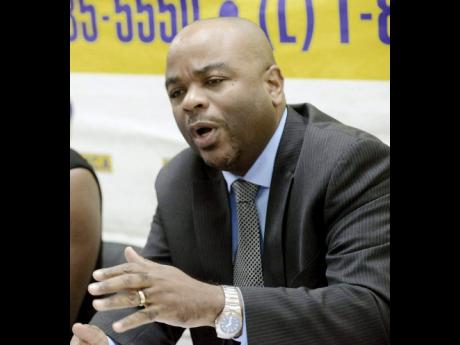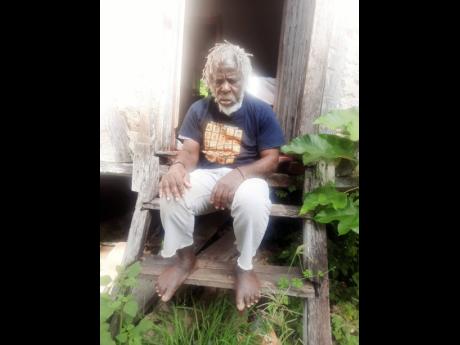Fighting for those denied justice
Advocates unite to aid disadvantaged Jamaicans trapped in prisons
Concerned that too many underprivileged Jamaicans are being victimised by the justice system, a group of attorneys and human rights campaigners have banded together to assist persons who have been languishing behind bars because of systemic failures.
Attorneys John Clarke; Terrence Williams, former commissioner of the Independent Commission of Investigations; Celine Deidrick; and Sasheeka Richards; as well as Jamaicans for Justice and Stand Up For Jamaica have taken on the cases of several individuals who have been waiting for an inordinately long period for their day in court.
“The three main areas that we see that have systemic problems are transcript matters, parole and mental illness, so that’s where our work is mainly focused,” Clarke explained to The Sunday Gleaner.
“The transcripts have to do with inordinate delays in criminal appeals. One of the key things that we are looking at is that many of the appeals in our country are being decided by prisoners simply withdrawing the appeals.”
He continued, “If one looks at why it’s being decided that way, it is that many of the prisoners would have almost completed their sentences and still unable to get the transcript of the case. So they withdraw the case, because in some cases the sentence is completed and the appeal is not heard.”
According to Clarke, many in the legal profession believe that this is a blot on the justice system and he wants to see less cases being decided along that line.
“That’s one of the reasons why the group of us started to look at the delays. In many cases, persons were just tired of waiting for their day in the appeal court and had to pick between ‘Do I pursue justice and stay in prison or do I go home to my family?’. And many persons say, ‘Well, we will never get justice in this country, for there is no such thing as justice. We were wrongly convicted, wrongly charged, we are poor, guh a yuh yard’,” said the attorney-at-law who had a front row seat to injustice growing up in state care.
HOPING WHEELS OF JUSTICE WILL TURN A BIT FASTER
The group is hoping that the wheels of justice will turn a bit faster for marginalised Jamaicans who have been waiting on long overdue transcripts, especially given that Chief Justice Bryan Sykes and Court of Appeal President Justice Patrick Brooks have expressed concerns over the matter.
Justice Brooks has noted that delays in providing transcripts have resulted in some convictions being quashed. And Justice Sykes has promised that the judiciary will be implementing a system that will ensure transcripts are produced as a matter of course.
Defence attorneys have also expressed frustration over the issue, arguing that such delays impact the outcome of appeals being pursued on behalf of their clients.
A big part of the problem, many have noted, is the lack of resources, including shortage of court reporters, to produce the transcripts in a timely manner.
PAROLE ANOTHER TROUBLESOME ISSUE
The matter of parole is another troublesome arm of justice, Clarke noted.
“Many prisoners have expressed concerned about it. When someone applies for parole, the system would know that you become eligible in 20 years and they would start to take steps before the 20 years to ensure that there is a fair hearing, and that on the 20-year mark, a determination is made as to whether you get parole or not. But there are barriers to prisoners even accessing the forms for application,” he shared.
“The form is not easily available and someone in the prison has to decide whether you are going to get the form or not. It’s not something that you can just pick up or print from the internet. Somebody has to deem you fit to get a form. So we are concerned with the system of how parole is administered and we want the courts to examine that to say whether or not it is fair.”
A key factor influencing the issue, he said, is the overcrowding of prisons, which causes some inmates who pose no real threat to society being unable to get parole.
Explaining that the Department of Correctional Services is responsible for recommending if a prisoner is fit for parole, especially if they are deemed to be no threat to society, Clarke said, “Yet the parole board and the government would take a good while to process whether or not the prisoner should get parole.”
He continued, “In one case that came to us, a prisoner was deemed eligible for parole, but they wanted to ensure that there was a family member that could take him. And if you don’t have a family member to take you, then you are not getting parole.”
He said there were many such cases where persons were denied parole because they were abandoned by families.
MENTALLY ILL DOESN’T BELONG IN PRISON
Mentally ill persons languishing in prisons is the third key focus of the advocates.
“Persons have been convicted because they have a mental illness and remain in the system with the illness. That is concerning for us on many levels, because if you look at the law, the law stipulates that the mentally ill should be taken to a hospital, yet our law enforcers have essentially become lawbreakers because that is not happening. The mentally ill remain in prison,” Clarke noted.
He said instances like this led to George Williams spending 50 years in prison without a trial before his release in 2020. The Government recently offered to pay Williams $6 million as compensation, a 100 per cent increase on the initial offer, which many view as an insult.
Clarke said these are among the issues the Government should be keen to address in the constitutional reform process, as every lawmaker has taken an oath to uphold the Constitution yet it is being violated.
He said the Constitutional Reform Committee should be concerned about the violation of any of Jamaica’s laws.
“Everybody has their own view of what the Constitution ought to be, so let us hope that action will be taken and we will see where it goes,” Clarke stated, stressing that serious and fundamental changes will only come with the creation of a law reform commission.



